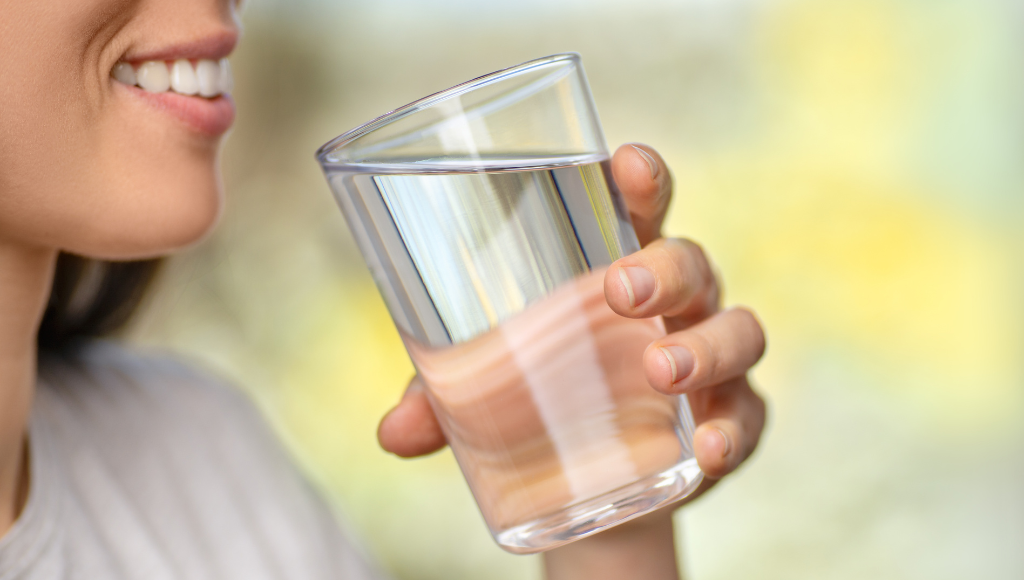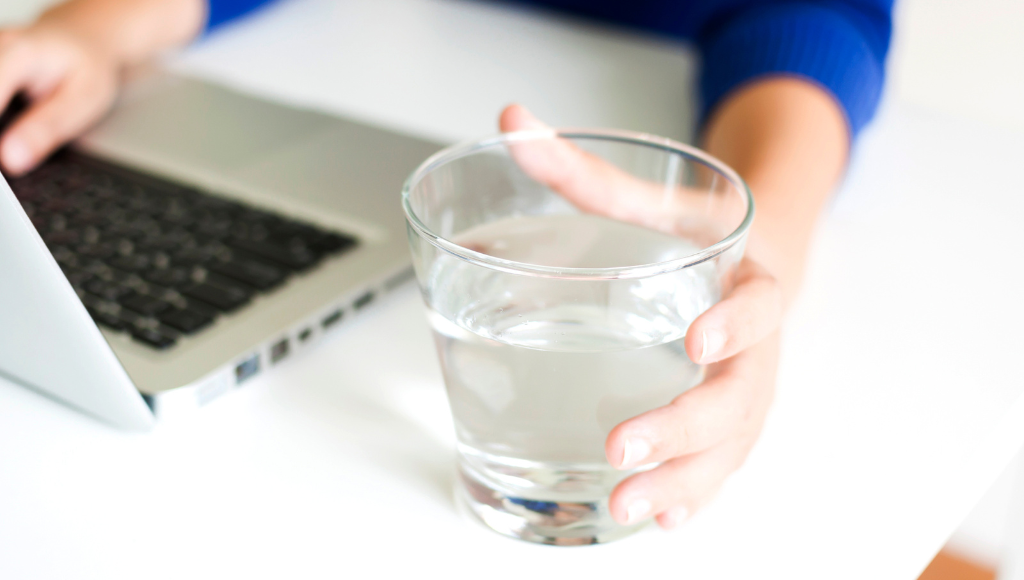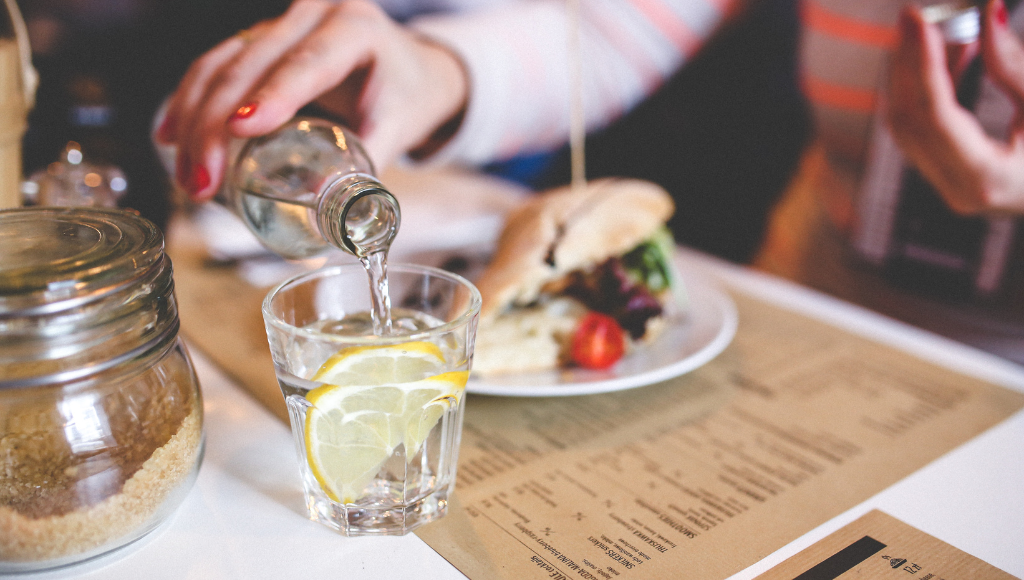1. How Long Before You Pee After Drinking Water?
2. How Long Does It Take Men and Women to Pee After Drinking Water?
3. How Long Does It Take People of Different Ages to Pee?
4. The Process Of Urine Formation In The Body
5. What Other Factors Influence How Long It Takes to Pee?
6. Is It Safe to Hold Your Pee?
7. To Round Up…
Drinking water frequently surely has its benefits, including facilitating the internal metabolic processes and keeping the body sufficiently hydrated and overall healthy. But there are a few not-so-convenient effects of drinking water, and one of them is peeing. While the human body is designed to use water beneficially, it also finds a way to expel some of the water after a while.
Most people regard peeing as an after-effect of drinking water. However, only a few can link the time it takes for urine to form after drinking. Have you ever wondered how long it takes you to pee after you have had a few cups of water? This blog answers this and offers other valuable insights into peeing after drinking water.
How Long Before You Pee After Drinking Water?
Let’s start with the most important question—how long does it take to pee after drinking water? Interestingly, the answer to this question will depend on who is asking.
A properly-hydrated person with an almost full bladder will need to urinate five to fifteen minutes after drinking water. However, the duration is far longer for a dehydrated person with an empty bladder—up to nine hours sometimes.
Now you may want to ask, is this waiting time the same for men and women? Let’s find out.
How Long Does It Take Men and Women to Pee After Drinking Water?
There is a popular belief that women pee more frequently than men, even if men drink more water, but that is all we know. No scientific evidence suggests that men have a higher total urine volume than women.
Does this hold for people of all ages? Let’s find out.
How Long Does It Take People of Different Ages to Pee?
The body does not wait for the bladder to get filled up before prompting you to urinate. Instead, the brain receives a signal from the bladder once it is filled up to one-quarter. This is necessary to protect the bladder from the risk of bursting due to getting filled up.
According to Healthline, age contributes to the time it takes to pee after drinking water.
| Age | Bladder capacity (ml) | Bladder capacity (ounces) | Time to fill bladder | Estimate time to pee after drinking water |
|---|---|---|---|---|
| Infant (0–12 months) | 30 – 60 ml | 1–2 ounces | 1-hour | 15 minutes |
| Toddler (1–3 years) | 90 – 150ml | 3–5 ounces | 2 hours | 1 hours |
| Child (4–12 years) | 210 – 420ml | 7–14 ounces | 2 – 4 hours | 30 minutes – 1-hour |
| Adult | 475 – 709 ml | 16–24 ounces | 8 – 9 hours | 2hours – 2hours 15 mins |
The Process Of Urine Formation In The Body
Knowing how urine is formed in the body will help us better understand how long water takes to digest and pee and the duration between drinking and peeing. The urine formation process in the human body consists of four stages:
1. Filtration
Urine production starts with filtration, which involves expelling excess water and waste products from the blood. Next, the unwanted fluid (urine) moves from the ureters to the urinary bladder, where it is stored until it is time for its removal during peeing.
2. Reabsorption
Urine production starts with filtration, which involves expelling excess water and waste products from the blood. Next, the unwanted fluid (urine) moves from the ureters to the urinary bladder, where it is stored until it is time for its removal during peeing.
3. Secretion
The blood contains certain unwanted substances, including toxins and drugs. During secretion, these substances are moved into the urine from the blood. One of these substances is urochrome, which is responsible for the yellow color of the urine. Urochrome is a pigment—a by-product of Bilirubin metabolism.
4. Urination
It is now time to expel the stored urine from the urinary bladder from the body. The nervous system controls this process. The brain receives the signal for expulsion once the urinary bladder is sufficiently filled. Then, the urinary sphincter muscles relax, and urine is transported from the bladder through the urethra and out of the body.
From the above, it is clear that the urine formation process is crucial to the human body’s well-being. That is why experts have continuously advised drinking enough fluids to stay hydrated and maintain optimal urinary health.
What Other Factors Influence How Long It Takes to Pee?
We have considered gender and age as factors that may affect how long it takes a person to pee after drinking. But these are not all—here are other factors that may influence the duration between drinking and peeing:
1. Type and amount of liquid consumed.
It is common to see people complain that “drinking water makes me pee every 5 minutes” or “after drinking water immediately after 10 minutes, I urinate, is this normal?” But the truth is that the more water you drink, the quicker your bladder gets filled, and the quicker you will feel the urge to pee. You will also spend more time peeing due to the frequent peeing.
While a normal person is expected to pee every four hours, drinking more water can increase the frequency. So, if you want to know how to pee faster, just drink more water.
People who drink other liquids, including coffee, caffeine, and soft drinks, are more likely to pee. Caffeine and coffee are diuretics, and therefore, they increase the urine production rate. The diuretic effect of carbonated drinks has also been established, the same with alcohol.
2. Activity levels.
Activity levels also influence how long it takes you to pee after drinking water. For people who work out or engage in similar activities, the duration between drinking and peeing will depend on how well they hydrate.
If you hydrate well after workouts, your body will have more water to expel, and you will urinate more frequently, and vice versa. This is another answer to the question of why do I pee so much when I drink water
3. Salt consumption and diet.
A diet with a lot of salt will condition your body to pee sooner and more frequently after drinking water. Water is necessary to dilute excess salt in the body. The body is forced to keep more water for this purpose when you eat salty foods. After processing, the water ends up in the bladder, leading to a more frequent urge to pee.
4. The time of the year.
The weather or climate affects body temperatures, which, in turn, affects how long and frequently you pee. For example, during hot temperatures, the body produces more sweat to stay cool. Water is the major component of sweat, so the more sweat you produce, the more water your body loses. This means your body will need more water to make up for it. The more water you drink, in this case, the more frequently you will urinate.
Hot temperatures mean more frequent pees, while cold temperatures mean less frequent pees.
5. Health and medications.
If you are on medications with a diuretic effect, you will urinate more frequently. In addition, your emotional, physical, and mental health all play important roles in how long it takes to pee after drinking. For instance, past traumatic incidents associated with urination can discourage you from using the restroom. Similarly, obesity and body weight are also associated with urinary incontinence.
Is It Safe to Hold Your Pee?
In most cases, the inability to urinate can result in a buildup of urine, leading to swelling of the kidneys and a higher risk of infection. When left untreated, this can cause kidney damage and allow the infection to spread to the bloodstream, which can be extremely dangerous. Therefore, prompt relief of urinary obstruction is essential to prevent these complications.
Some potential risks of failing to urinate include:
- Urinary Tract Infections (UTIs)
- Bladder Infections
- Kidney Damage
- Urinary Retention
It’s important to listen to your body and urinate when you feel the urge to go. If you experience frequent urges to urinate or have trouble controlling your bladder, talk to your doctor.
To Round Up…
As simple as peeing may appear, it is a complex internal process. Therefore, how frequently you pee or how long it takes to pee after drinking water will depend on some factors. This blog has provided valuable insights into how urine is formed and what is responsible for quicker or slower peeing after drinking water and other liquids, as well as more frequent or less frequent peeing.
Finally, there is no set number of times you should urinate after drinking. All you have to do is stay hydrated by drinking as much water as possible.





